I have a file, it is large, reading it takes a long time and I'd like to have some monitoring to see when it's being written to.
I can solve this quite easily by chucking some logging into the application that it reading it, however I'd like something more agnostic. There are quite a few application that have a similar use case. Monitoring writes should be easy enough as I can watch the last modified date, but reading isn't so easy.
If there any way to passively monitor read and writes to a file?
To clarify: If it can do done in 100% C#, then great, if not then shelling out to some other 'thing', or even resorting to some other language is fine. I don't really mind what the watching bit is written in.
Trying Rahul's Solution
I have set up ithe following test code. It dumps events to the console:
public static void Main()
{
var taskFactory = new TaskFactory();
var setup = new Action(() =>
{
var setupWatcher =
new Action<NotifyFilters, string, FileSystemWatcher>((filters, s, watcher) =>
{
watcher.EnableRaisingEvents = true;
watcher.NotifyFilter = filters;
watcher.Changed += (sender, args) => System.Console.WriteLine(s, args.FullPath, args.ChangeType);
});
var lastAccessWatcher = new FileSystemWatcher(BASE_PATH);
setupWatcher(NotifyFilters.LastAccess,
"File: {0}\tFilter: LastAccess\tType: {1}", lastAccessWatcher);
var lastWriteWatcher = new FileSystemWatcher(BASE_PATH);
setupWatcher(NotifyFilters.LastWrite, "File: {0}\tFilter: LastWrite\tType: {1}",
lastWriteWatcher);
var fileNameWatcher = new FileSystemWatcher(BASE_PATH);
setupWatcher(NotifyFilters.FileName,
"File: {0}\tFilter: FileName\tType: {1}", fileNameWatcher);
var directoryNameWatcher = new FileSystemWatcher(BASE_PATH);
setupWatcher(NotifyFilters.LastWrite, "File: {0}\tFilter: DirectoryName\tType: {1}",
directoryNameWatcher);
});
taskFactory.StartNew(setup);
while (true)
{
Thread.Sleep(10);
}
}
However, when I open a text file in notepad, no event is thrown by the lastAccessWatcher, whereas, when I save, two events are thrown by the lastWriteWatcher and the directoryNameWatcher, as per below.
File: F:\FileMonitor\New Text Document.txt Filter: LastWrite Type: Changed
File: F:\FileMonitor\New Text Document.txt Filter: LastWrite Type: Changed
File: F:\FileMonitor\New Text Document.txt Filter: DirectoryName Type: Changed
File: F:\FileMonitor\New Text Document.txt Filter: DirectoryName Type: Changed
So...
- What does trigger 'last access'
- Can I actually have any trigger fired when a file is read?
